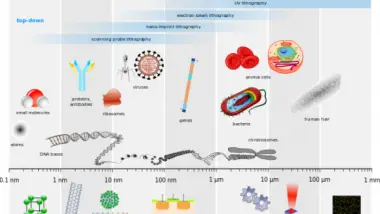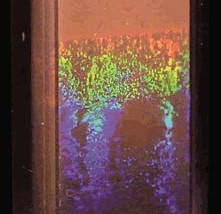A recent study published in the December 2014 issue of Environmental Toxicology found that increased exposure to nanoparticles can potentially lead to elevated risk of cardiovascular diseases. As the consumption of nano-based products continues to rise at exponential rates, this ...
Poplar Trees and the Density of Computer Memory
Scientists from the Hebrew University of Jerusalem, Israel, have recently reported the successful implementation of protein molecules obtained from the poplar tree in computer memory chips. Using silica nanoparticles, the team presented futuristic possibilities for memory expansion. Prof. Danny ...
Nanofluidic ‘Multi-Tool’ Separates Nanoparticles
Researchers from the U.S. National Institute of Standards and Technology recently presented a newmethod to sort nanoparticles by size. The device used could help future scientists perform complex operations on the nanoscale level. A 3D nanofluidic “staircase” channel with many ...
Drugs Encapsulated in Nanoparticles
Scientists from the Massachusetts Institute of Technology recently introduced a new method to administrate drugs targeted at cancer cells. They have shown success in experiments involving patients with cancer, and their development could help administer other types of drugs. MIT ...
Disinfect Water with Light
Researchers at the University of Illinois at Urbana-Champaign and the Shenyang National Laboratory for Materials Sciences in China have developed a new catalyst that uses visible light to disinfect bacteria and viruses. The new process – which works in either ...
Self-Assembling Optics
A group of researchers led by Peidong Yang, a professor of chemistry at the University of California, Berkeley, have recently created nanoscale particles that can self-assemble into various optical devices. These include photonic crystals, metamaterials, color changing paints, components for ...
Polymer Electric Storage
A team of materials scientists led by Qing Wang, associate Professor of materials science and engineering at Penn State, is currently developing ferroelectric polymer-based capacitors that can deliver power more rapidly than conventional batteries. The polymer, with the addition of ...
Capturing Cancer Cells with Magnets
Scientists from Georgia Tech have invented a new way of battling cancer. Their new technology involves nanoparticles that attach themselves to cancer cells and guide them out of the body. With further development, this invention may help detect ovarian cancer ...
Ford Going Nano
Ford intends to use nanotechnology in order to improve fuel consumption and reduce vehicle weight. The company is currently developing a thin, thermally sprayed nano-coating that is both wear-resistant and much lighter than the cast iron liners that are being ...






